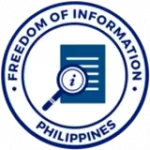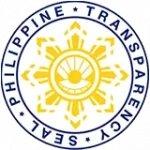LIGTAS Pamilya Program
The Ligtas Pamilya Program, implemented by the Ministry of Social Services and Development (MSSD), aims to increase the resilience of vulnerable families in the Bangsamoro Autonomous Region in Muslim Mindanao (BARMM) by providing community-based disaster risk reduction (DRR) interventions and first aid training. The program focuses on addressing vulnerabilities, reducing risks, and advocating for behavioral change among family members to become their own first responders in times of crisis.
The objectives of the Ligtas Pamilya Program are as follows:
- Support vulnerable families in preparation for human-induced and natural disasters, including internal displacement.
- Contribute to social protection intervention by targeting indigent families based on assessments conducted by the Ministry.
- Advocate for behavioral change among family members to become their own first responders during crises.
- Increase capacities and support family coping mechanisms during crisis situations.
The program consists of two major components:
- Provision of DRR kits or Grab Bags with First Aid Kits: The DRR kits contain essential and portable items needed during a crisis. These kits include flashlights, whistles, bandages, basic medical supplies for first aid, and other related items. The head of the family or senior family member is required to participate in DRR and First Aid training to receive the DRR kits.
- Community-based training on family disaster risk reduction and first aid: This component focuses on providing training to families on disaster risk reduction strategies and basic first aid. The training sessions are conducted at the community level and involve mobilizing existing MSSD resource persons, including DRR focal persons, municipal links, trained social welfare officers, and partners such as local DRRM officers, Philippine Red Cross, Bureau of Fire Protection, and other members of the Disaster Response Pillar/Cluster.
The program targets vulnerable families from natural disaster-prone areas and conflict-affected communities, including families of farmers, fisherfolk, laborers, informal workers, female-headed households, persons with disabilities (PWD), and child-headed households. Beneficiary selection is based on existing data sets on indigent families, case folders of social workers and rural health units, assessment of survival status, and the Bangsamoro Poverty and Disaster Registry. MSSD may also engage qualified force multipliers such as community leaders and local responders as program partners or beneficiaries.
The implementation procedures of the Ligtas Pamilya Program involve following the Ministry’s DRR operations plans and protocols, conducting beneficiary assessment, coordination, validation, and verification, as well as the actual distribution of DRR kits and training sessions. The provincial offices of MSSD and government partners manage beneficiary identification, validation, distribution, and post-distribution monitoring. Regular quarterly financial and narrative reports are submitted to monitor the progress of program implementation.
Monitoring and reporting of the program are carried out by the Provincial Operation Office through assigned monitoring and evaluation officers. The Office of the Minister, through the Monitoring and Evaluation or the Internal Control Unit, conducts monitoring activities, implementation reviews, and document examinations to assess the status of implementation and compliance with the program guidelines and design.


